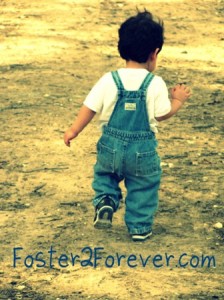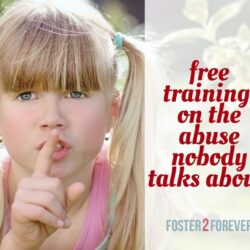Learning to roll over, follow your voice, sit up, walk, and talk are important developmental milestones for infants and toddlers to reach.
Also, the  age your child reaches these milestones is equally important: You can possibly foretell a child’s learning potential or perhaps another underlying issue by examining a child’s development pattern.
age your child reaches these milestones is equally important: You can possibly foretell a child’s learning potential or perhaps another underlying issue by examining a child’s development pattern.
Our Lil Bit is a big baby – at the 95th percentile for weight. Given his chunkiness, it took him longer to roll over, put weight on his legs, crawl and walk. Since he was behind on all these milestones, his caseworker at the time requested that he be evaluated for developmental delays by our state’s Early Childhood Intervention (ECI) program.
Early Childhood Intervention is a result of the Individuals with Disabilities Education Act (IDEA) which, among other requirements, mandates that infants and toddlers with disabilities or developmental delays receive support services from birth to age 3. (Local school districts provide services for children over the age of 3.)
In October, at 14 months, our Lil Bit was evaluated by ECI on the following criteria:
Although behind (mostly fine motor skills), he was still within the normal developmental range.
Flash forward to February, at 18-months-old, our Lil Bit is becoming increasingly behind in his communication. He does babble, but says very few words and rarely calls for mama or dada. (At 18 months, Lil Bit should be saying 8-10 words) In December, his hearing was checked and was normal. He is social so we don’t have too much of a concern for autism. But we are concerned, especially seeing his classmates in daycare saying so much.
Lil Bit was evaluated again last week by ECI and was markedly behind in communication. An Individualized Family Service Plan (IFSP) is being developed to assist us in helping Lil Bit catch up, with an emphasis on speech therapy. These services are provided free of charge regardless of income or immigration status.
This 4-minute video by CDC gives a good overview of how to recognize child development problems early.
Early Recognition of Childhood Development Problems
Is your child on target for meeting developmental milestones? Here is a great resource for checking important developmental milestones.
If you would like to have your child evaluated, here is a List of State Early Childhood Coordinators to find one in your state. Evaluations and assessments are free.




